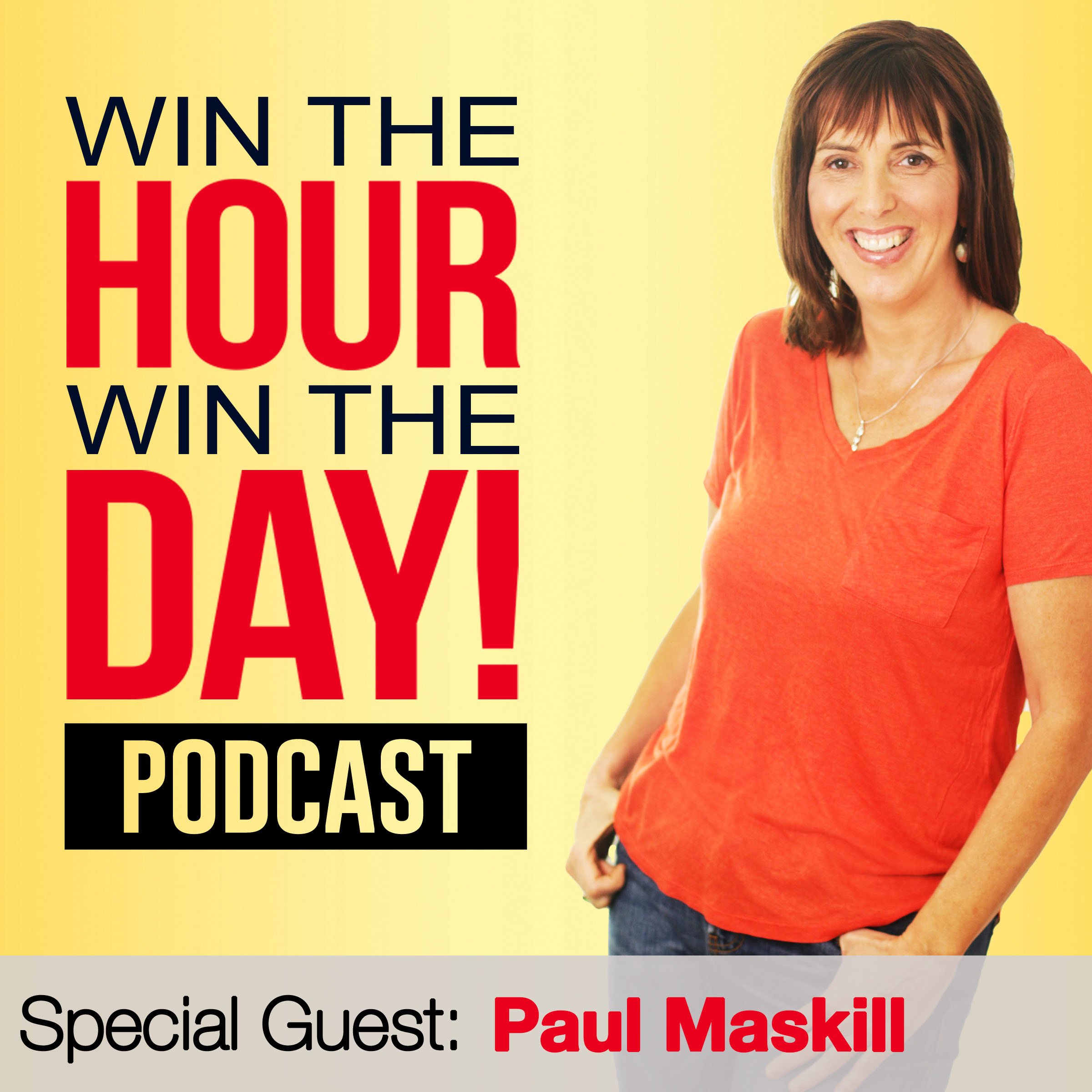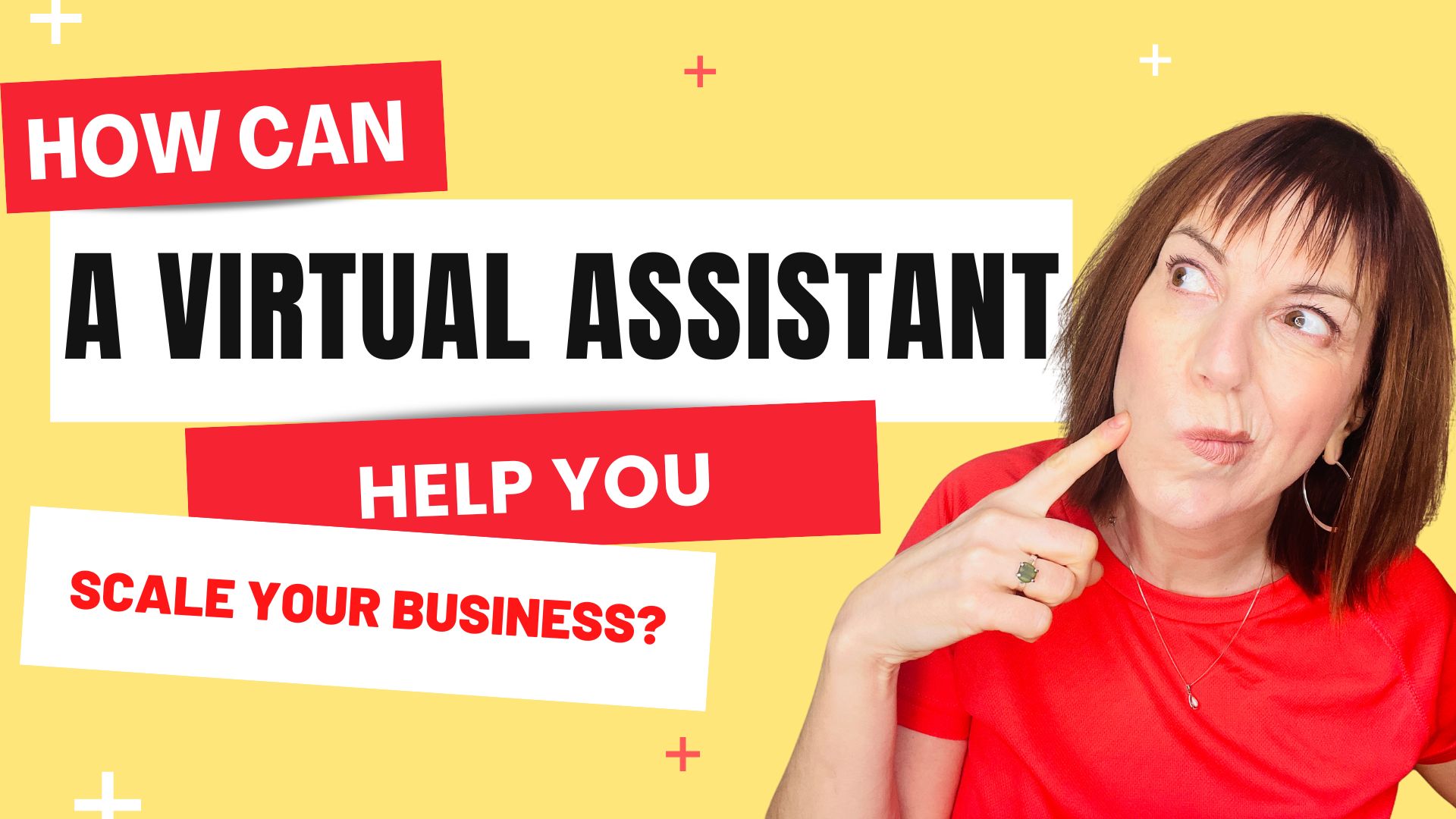Episode Summary
Paul Maskill is a serial entrepreneur with an amazing track record. His biggest lesson in business though came from watching his dad.
Join us a Paul tells a story that ignites a dynamic conversation about entrepreneurs and business as whole.
Learn
– the most painful lesson any entrepreneur can learn
– your truth worth as an entrepreneur
– the easy way to success
Join The Community: https://www.facebook.com/groups/WinTheHourWinTheDay/
Win The Hour, Win The Day! www.winthehourwintheday.com
Podcast: Win The Hour, Win The Day Podcast
Facebook: https://www.facebook.com/winthehourwintheday/
LinkedIn: https://www.linkedin.com/company/win-the-hour-win-the-day-podcast
You can find Paul Maskill on:
http://www.paulmaskill.com/
Instagram: paul_maskill
Linkedin
Facebook
NYB Guest – Transcriptions – Paul Maskil
Kris: (07:51)
Hey everyone. Welcome to now your business. It’s Kris Ward and today boy, Oh boy. I cannot wait to dive into this discussion. There is going to be so much content here. Today’s guest is Paul Maskil, the founder of the ultimate freedom mastermind. After building his own business from zero to 500,004 years and selling it for a lucrative return, Paul set out on a new mission. He watched his father pour everything he had into his own service based business for 40 plus years until he could physically no longer do the work with no employees and no systems. Paul’s father was not able to capitalize on all the work and all the risks that he put in for over four decades. The sale of the company was simply selling the truck and the equipment. Today, Paul helps other small business owners build their business so that it can thrive without them enabling them to leverage their business, to build a life they love. Paul, welcome to the show.
Paul: (08:52)
Kris, thank you so much for having me. I’m super excited about this.
Kris: (08:54)
Oh, you know what, you can’t be more excited than me because I tell people this day in and day out and it seems like such a pipe dream when you’re talking to somebody and you’re saying, look right now you got nothing to sell. Like you are self employed and it’s a very expensive journey that you’re on and you know, you’re putting all this blood, sweat and tears in what’s going to happen 20 years down the road. If you have no systems or anything, you, you know, all you’d be doing is hire yourself out and getting a new job. So I’m constantly saying that to people. And so your story about your father, man, that just, that turns me inside out. So tell me more about that.
Paul: (09:33)
Yeah, and I think it’s common amongst, you know, most people who start their own business, they’re the technician. They’re better at it than anybody else. Nobody can do it as well as they can. And, uh, they don’t see the need until they literally can’t do it anymore. And literally can’t do it might mean my kid got sick and I got to be in the hospital with them for a month, or I just got injured. How am I going to pay the bills? Because now no money’s coming in. Or maybe you’re just don’t want to do it anymore. And you can transition it to somebody else, whether it’s to the next generation or through a sale or empowering somebody on your leadership team to run it and you can create a passive income stream. So when I saw my dad go through that very successful brand that he built, he had a line out the door. People wanted to work with them. You know, people would wait months for to have him. He was in the home contract in space. Uh, he did hardwood floors. So people knew he was the best. Uh, the, you know, the problem was, is that nobody else knew how to do what he did. And he wasn’t really willing to hire people and he didn’t trust other people. So once he got to 62, 63 years old, he just said, I literally can’t do this anymore. And his flow of income stopped immediately. And not only that, but he had no exit strategy. So had there been systems, processes and people in place, he probably could’ve, you know, sold that business for several million dollars and been a lot better off now, uh, than he is just for me. I put in all this work, what is my return?
Kris: (10:58)
I know, and you know what? Oh boy, you’re going to have a hard time getting off the show with me because I tell you, I could talk about this for days because that’s a thing like the sadness, the emptiness of all the things that he learned over the years and how much he grew in his talent. And then one day, never mind getting tired and, and beating down body from doing it. So doing the same level of execution all those years if not more. Then he just closes the door and walks away. Like you’re right, selling a truck and a piece of equipment. I mean, the man he deserved, he could have got millions for that
Paul: (11:32)
for sure. You know, and that’s really, you know, I saw with my personal business, I saw me going down that same road cause I got to the point of there is demand in the market and I literally can’t capture, cause I’m already kind of maxed out. So
Kris: (11:45)
Yeah
Paul: (11:45)
I realized that, what’s the worst case scenario? If I hire somebody who doesn’t work out well the work’s just going to come back to me and that’s where it is anyway. So I might also give this thing a go. I see other people doing and if they can do it. So can I.
Kris: (11:57)
Yeah. And you know, I, I was so fortunate people, Paul has a podcast of his own and I was very lucky to be a guest on that show. We talked about this on your show and I’ve actually to this point, never talked about, talked about it on my show here. But, uh, as you know, Paul, uh, I went through a situation, I have the book win the hour, win the day, and I’m all about strategies, levering your time, tripling your time off, doubling your income, all that stuff. And I went through a situation where my husband had been diagnosed with colon cancer and you know, I went away for two years because I’m telling you take all the emotion out of that. That is a full time job with treatments and doctors and all that. That literally is a full time job and I was able to return after his passing, after his death and I had a business intact and let’s again, you know, take all the emotion out of that. I lost an income, right? And life has interruptions and hiccups and what would I have done then if I come back and now I’ve lost an income, you know, I’m selling the family home, which is too big for me at this point now. And you know, all kinds of stuff and no business. Like I wasn’t emotionally in a situation where, Oh, this is great, this is a time to start a new project to get back out there, right. Roll up your sleeves and be creative. That’s not where I was at. So life does have interruptions and you’re right. Like it’s, it’s a, it’s a painful process, but you really don’t lose anything by starting even so super small and say, okay, can I hire somebody for four hours a week to take some of the admin tasks off my lap so that I can execute at a higher level?
Paul: (13:31)
Yeah, I mean that’s, it’s so true. And I was just on a mastermind call with my mastermind and one of the guys said, I think I need an assistant. And we outlined like 20 to 30 hours a week that this person could do to free them up to, you know, continue their, continue on their goals, consider the path, but also be there if something does happen. Because when something does happen, if we’re running the business and it’s just relying on us, you’re, you’re gonna be freaking out and you’re not gonna be really know what to do in your example. You know, even my example, my parents are getting older. What happens when I need to fly to Michigan to be with them?
Kris: (14:05)
Yeah.
Paul: (14:06)
Can I, can I do that? I’m gonna have zillion regrets if I can’t, because I got to be here with my business day in and day out to pay the bills, to feed my kids, to feed my wife. When my parents are up there, they need me just as much, but I can’t leave because I’m tied to my business. So, you know, really taking that bigger picture and having that vision of where do I really want to go and why am I doing what I’m doing. It makes it a lot easier. Kind of takes the emotion out of I need to delegate this stuff and I need to delegate it like yesterday to be in that advantageous position if something were to happen.
Kris: (14:35)
Yeah, I believe your business should support your life, not consume it. So man, you know, you’re preaching to the choir here and often too, people don’t realize, I mean I get the this excuse all the time. I’m sure you do. Like, Oh, you don’t understand Kris, my business is different because I’m X. My business is different. I’m why. And even if you’re a brain surgeon, um, you know, there’s stuff you can task out so that your time is more focused so you’re not rushing from one surgery to the next. There’s always something that you can delegate. I would challenge you to reach out to Paul or myself and say, look, here’s my business. I don’t think I can delegate anything. I know for me, we just, one of our giveaways, and we can put this in the show notes, is 77 things I outsource every day. And the world is such a magical place right now. I mean, you can outsource amazing talent for on believably affordable prices. So there’s just no reason not to. Would you not agree?
Paul: (15:32)
Totally agree. And I would also challenge people to look outside of their business. So hire someone to clean your house, hire somebody to go grocery shopping for you, hire somebody to cut your grass. There are so many things that you can outsource and when you start to value time as the most valuable asset, which it is, then it’s like, yeah, I can pay this person $15 an hour to clean my house because my time is worth way more than that. And I’d rather spend 90 bucks to pay this person for, you know, six hours or whatever it is. So I have six hours with my family, you know, whatever it might be. And to your brain surgeon standpoint, I was just listening to Michael high yesterday on a podcast talking about like the highest paid a heart surgeon and literally he has delegated and outsourced everything except like this one single cut that he basically makes better than anybody else. So he can just walk into a room, make that cut and leave. And that he has delegated, trained, built this team where it’s, I know I just have to focus on one thing just like everybody else. And when you can focus on one thing instead of a thousand you’re gonna be get so much better results. Not just between yourself but the team members you hire. They’ve only got, you know, a couple of focuses as well instead of trying to juggle everything.
Kris: (16:40)
Yeah, and you know, I think where people get stuck as you think as the entrepreneur, you’re always trying to save money. So you think, well, you know, I could clean my house myself, I can do that at night, I can do whatever, and then it won’t be wasting the money. But here’s what you need to think of is those five hours whenever costs you 50 60 bucks. You could be in your office doing, you know, revenue generating work that’s going to weigh out, see the 50 bucks you paid to clean your house. I know when I started really when I got the outsourcing fever, I’d say about eight years ago, and I did it for the first time in my life, had somebody cleaning my house and I thought, well, this is decadent, but it did. It gave me like I would work Sunday afternoon to get some projects out in enthusiasm and be rested and creative while somebody is cleaning my house. I thought, well this makes much more sense to the point where I said to John one day, if you look at me affectionately, I know how to outsource that now. Like sort of see everything, right? So yeah, you are so right. That’s a really great example about the, about the surgeon. So tell me about what are some of the, you know, what are some of the roadblocks that your clients have or even you on your journey of, Hey, let’s outsource, you know, what’s talk to my, because so many people have so many objections. So how did you work through some of your own internal objections or the ones with your clients?
Paul: (17:56)
Yeah, so I mean, one from a numbers standpoint, it’s really easy, right? So you can pay someone $15 an hour to clean your house. If you’re not making more than that in your business, your, your business really isn’t viable anyway. Cause I can go to Starbucks and make $15 an hour, at least break even. Um, so really putting a value on their time. But what I found is they don’t really have a clear, they don’t really have a clear vision of where do they want to go from a personal standpoint into your point of what you love to do. I’m on the same page. Let’s build a business to support that lifestyle to achieve what we really want to do. Cause we only got one shot at it. And what I found with myself in many entrepreneurs, our number one goal was to just be our own boss. And once we achieved that, we quit our jobs, started on business for self-employed, then it’s kind of like, okay, now what do I just keep this thing going? And that’s literally what we do because we don’t have a further vision because we’ve already kind of achieved our goal of I don’t want to have to work for the man anymore. So when we can get really clear on what your ideal lifestyle looks like, all the way down to who’s cleaning your house and where you’re spending your time and what’s you’re eating and what you’re doing, and then we can put a dollar amount on that of what is it going to cost to build that lifestyle. Then we know exactly what type of business we need to build, who needs to be on board, what’s the org chart look like? How much revenue does that business have to do? And that takes the emotion out of it because that becomes your filter of everything you do. Is this getting me closer to that goal? If not, why in the heck am I still doing it? So when we can break it down and take the emotion out of it, because we’re so emotionally tied to our business, it’s our baby. We started it and nobody can do it as good as I can. Nobody cares as much as I do. I can’t find anybody. I can trust all those excuses. Then it’s like,
Kris: (19:36)
Yeah
Paul: (19:36)
I know I need to do this because it’s getting me closer to my goal, which is serving myself, my family, my clients, my employees better. If I just take this next step, whatever that next step might be.
Kris: (19:46)
You know what it’s like, we’re like minded only the two different paths because in one hand really what you’re talking about, we talked about this I think on your show is I talk about that with your, with your day and your time is working backwards, right? What’s the end goal? And you know, so many people, I was speaking on your podcast go projects. We all get so excited when we get a new client, we dive in enthusiastically but without saying, okay, when do we need this delivered? So when does this happen? That happened and you have to work backwards or else you just put your head down and work till you sort of fuel out and then you don’t even have any clear communication with the client when, when that can really effectively be done, whatever that project is. And to your bigger point you made. Yes. So many of us start a business and it’s really just like trying to outrun yourself and you’re just going as fast as you can, like run bitch, run and see how fast you can run and how long you can run and you’re just running. And then you think, okay, no one’s caught me, my business is surviving when everyone else is, you know, they said it’s 80% chance of failure, so you’re right, exhaustion and, and staying alive, but not thriving is the success. So it’s not clearly planned. And I, I, I would argue, I would say maybe 90 95% of us do that.
Paul: (21:01)
Yeah. And I think it’s whenever you ask anybody, how’s business going? So it’s going pretty good. And then it’s like, I’ve never talked to a business owner. It’s like, Oh, it’s not going, it’s going terrible. But then when you start getting in the weeds, it’s like, yeah, this business really isn’t working. Dah, dah, dah, dah. So like there’s no need to, you know, lie to yourself that everything is just great because you’re own boss. It’s okay to be vulnerable and there is no trophy for doing this whole thing by yourself. In fact, if you try to do by yourself, you will be part of that 80% that fails because it’s just, it’s a big mountain to climb. But when you have somebody guiding the way, learning from having mentors, learning for people who have been through what you’re, you know, what you’re going through now, who are in places where you want to be and it just makes it a lot easier and you realize, I don’t need to reinvent the wheel. There is no trophy, there is no badge of honor. Look how awesome I am even though that’s in our blood. That’s how we got to where we were. It’s kind of like, I can do this. I can figure it out my own. No one needs to help me. That’s great until it becomes a problem. So you know, understanding that it’s not always gonna be easy, but you also need to know when it’s okay to say, Hey, I need help. And that’s okay too, because no one has ever built a big business on that. You know, by themselves.
Kris: (22:11)
No, I keep saying that is the backbone. The number one thing of any success story in the history of business is that they had a team. And I think what you’re saying, which is even more powerful is, you know, I agree. We all wear this badge of honor where we work so hard and this is great. I’m a hard worker and this is what’s got me this far in life. But what you’re saying is really be a hard worker on building a team. If you have to put that muscle into it, use that muscle to build a team. Because like, you know, otherwise we’d just keep driving and home people you’re self employed. That’s the only, you’re, you, you don’t have a business. You’re not an entrepreneur, you’re self employed.
Paul: (22:49)
Yeah. And you’re at that point, you’re better off going to get a job because at least a job you usually get benefits. 401k retirement, disability, uh, you know, leave paid, leave, paid time off, unpaid time off, whatever it might be. Um, you know, so understanding that I don’t, I haven’t talked to a business owner yet who said, man, I can’t wait to start my own business because I am so excited to be attached to it. 24, seven and keep that hamster wheel running. Nobody, nobody wants that. But their actions aren’t mapping to what they want. So figuring out what you want, why you want it, why it’s important, just makes it a lot easier to then figure out how am I gonna get there. So you have, you know, you have that plan in place.
Kris: (23:28)
Yeah. And I hear it so many times, and I’ve seen, saw this just the other day on Facebook and somebody was like, Oh, I’m so excited to quit my job starting in business because I want to spend more time with my family. I’m like, well good luck with, yeah. So you should have talked to somebody first because you know, I’ve heard that so many times. Oh, I, I had this passion and I thought, well, you know what, and then I could spend more time with my family and like, how’s that working for you? Right. So that is just the funniest thing ever that I’ve ever heard. So yeah, I totally agree. And so what are some other pain points that you see in your clients as far as making the shift?
Paul: (24:04)
Yeah, so I think it’s really understanding that, you know, getting over the hump of somebody else can do this job. If they do it at 80% as good as you can, that’s okay because 80% of you is still amazing to the customer and whatever service or product you’re delivering. So you know, really building your business based on systems and not people. So when you have the systems and processes in place, they’re not going to fail. If they fail, you can fix them. But understanding that you have a gift, whatever it is that you’re good at, you have a gift and you need to share it with other people in order to impact more people. Because that’s probably why we started our business anyway. We’re good at it. We’d like it. And we want to get this out to the world. Well, the only way to impact more people is to teach other people what you’re doing. So you know, really getting on that mentality that there’s, I tell everybody, 99.9% of the people in this world are good people. Otherwise we’d like all be dead, but we’re not. There’s 7 billion people alive because we’re good people. So when they, when you hire somebody and they don’t do it the way you want it to, it’s not their fault, it’s your fault. You failed to provide them something, whether it’s, you know, granular details, you know, support, training, infrastructure, they’re missing something. Because if you show, if you document exactly how you do something, 95% of the things you do, somebody else could do it just like you did. And the best part is, is then they’ll take it, well, figure out what the end result is that you’re wanting. And then they’ll say, Hey Kris, did you realize if we add this in here, it’ll actually make it quicker, better, more efficient? And you’re like, Oh, go ahead, let’s implement it. So now they’re gonna improve your business. And you know, really get you close to where you want to go. So I think getting over that mindset of, you know, look, you’re not that special and that’s okay, but what you can do is special. Now let’s teach other people how to do it.
Kris: (25:56)
Yeah. You know, you touched on a couple of really powerful points there that I want to address and one is you’re right, like you know the argument, if they can do it 80% as effective as you can, then you’re still doing amazing. But I would argue too, by the time you run yourself into the ground working crazy hours, do that for year or two minimum, you’re 80% is decreasing a considerable amount. Right? So you’re not even like they could be doing it 70% and at some point when you’re tired, cause I know I used to jump up and say, Oh I’m gonna learn how to do something new at the end of the Workday. And that would be starting at six seven o’clock after I’ve worked like 12 hours. So that was a ridiculous plan. So I think that they’re further ahead from the get go if you’re in a position of strength where you’re not exhausted. And, and I also totally agree and I often try to drive this point home about systems. Like they don’t have to be complicated, but you’re running around with so many things in your head that you haven’t planned out as a system. So you’re right, if you hire somebody and they didn’t do it the way you wanted, like if you’ve ever had the misfortune of teaching a child how to tie your shoe or someone had to drive a car and all of a sudden you realize, Oh, there’s all these things I just did and I didn’t even know. And you know, and then it’s like, Oh, it’s not that, you know, you’re maybe a bad teacher or they’re bad students. Like wow, there’s way more steps here than I thought. Just tying your own shoe. So that’s the simplicity of it is really, you’re right. It’s not about the person. I say all the time like, man, Oh man, if it didn’t work out, I’m sorry the buck stops with you.
Paul: (27:31)
Yeah, I mean in that car, the how to drive a car. I mean that’s so true. Cause I’m just thinking in my head the actual steps. Like I would just say get in the car, you know, and go to the store. But you’ve got to get the keys, you got to unlock the car, you’ve got to put your foot on the brake, you’ve got to turn it, you got to start it, you’ve got to put it in reverse. And then it’s, that’s just getting the thing going and then it’s like a hundred different things. So understanding also having the empathy of we’ve all been in those jobs, we’re trying to learn from somebody else and basically I took my experience in the corporate world and why the training sucked and let’s do the exact opposite of that. I don’t want to sit next to somebody write notes all day and be like, Ooh, I know Kris tell me how to do this. But I don’t remember exactly. So I’m just gonna kind of wing it and cause if I ask her, she’s gonna think I’m stupid and then it doesn’t come up the way Kris wanted it done because the systems, you know, the, it wasn’t that detailed. Now it’s not, it’s, it’s simple, but it’s not easy. Right. So it’s just like, okay, I just need to be really detailed. And a lot of my clients like, why isn’t my assistant doing this? It’s like, well, what part of the process are you assuming? And then they’re like, Oh yeah, I’m assuming that they think like, I think of [inaudible] go here, but really you need to tell them how to get there, not just go there.
Kris: (28:45)
Yeah. And so many people, they’ll hire someone and then they’re like, Oh, I didn’t work out. She has too many questions. And then they don’t have password setup, they don’t have anything. And all of a sudden the person’s doing four steps and then they’re like, Oh, this isn’t working. They’re like, Oh yeah, that works. But not on Tuesdays. On Tuesdays you have to do that differently. And Oh well that’s not in these steps. Right? So then, then what happens is that the tail is wagging the dog. Now you’re looking at them like they’re a nuisance. They’re constantly interrupting your work because you didn’t set up a system and, and you didn’t even, you talked about driving Paul wait to have the misfortune of teaching a child how to tie a shoe. I can’t, I looked at, I looked at a four year old one day and I said, you know what? I don’t know how I learned. I don’t think this can be done. This is way more complicated than I ever imagined. So yeah, I totally agree with everything you’re saying. And I, and I think [inaudible] as they say, the devil’s in the details and that makes all the difference for success. Those are really good points. So, uh, so tell me more about, you know, how you overcome these processes with your clients.
Paul: (29:46)
Yeah, so I think, you know, what I find works best is just breaking the ice too, really starts kind of delegating and delegating something that’s super simple. The easiest thing that you do just to show yourself and prove to yourself that yes, somebody else can do this. So you know, basically I take it down, super simple. Each business, and we’ll go through this quick, but each business is based on five systems and it follows the customer journey. The first system is lead generation. So how are you generating interest? The second one is sales. So turning that lead into a customer. The third system is the customer relations, so the service and the experience, reactive versus proactive. The fourth one is the actual service that you provide. And then the fifth system is all the backend operations that everybody hates. So look at each system. Just write down every single thing that you do within that system and then number one through however many, what is the number one thing that you want to delegate? And I recommend that number one thing, just the easiest thing that you do in your business that anybody could do, your four year old could do. Even if they can’t tie their shoe, they could probably do this task if you show them how to do it. Find somebody to do it via one of your employees, whatever it might be, your kid, your wife, your husband, whoever, and just start documenting how that thing’s done and start that snowball. I call it the delegation, snowball. Start that snowball, get the momentum, keep on doing it. Even if you do one task a day, by the end of the year, pretty much everything that you do will probably be delegated and just doing that one bite size a bit at a time, chomping down bigger and bigger bites of what you want to get off your plate.
Kris: (31:23)
Yeah, and understanding too, what I hear from time to time, people will say, well, Oh that one little thing that’s just quicker. If I do it myself, yes, okay, sure it is, but now times that times a hundred, you know, over and over and over again. So it’s really about creating the process. It’s not that one little thing. You have to understand you’re building, you know, you’re working on the business, not in it, and you’re building out this, this platform that then you can execute anything. You can put anything into that machine, into that process and have it execute at a higher and higher level. I’ll be honest, I remember talking to someone the other day and I said to them, you know, you have these big ambitions for your company every year. And I said, my team right now where they’re at is where I hoped to be last year. Like meaning like they allow me to accelerate where I’m going so quickly that my ambition was to be where they are, but because they’re there it pumps me up even higher. Like it’s just unbelievable what you can do when you build out a support that’s going to work for you and just really accelerate your business.
Paul: (32:24)
Yeah. And I think it’s the momentum and the power of a team too because now you’re accountable. Cause when you’re setting these quarterly or annual or semi annual goals, you say, all right team, this is where we’re gonna go. Now everybody’s mission and vision is let’s go make that thing happen because our leader said so. And then the leaders like, Oh, I got to deliver on this because I told you know all my other employees or staff or contractors that that’s what we’re gonna do. So it really does speed it up because now you’re accountable. Cause I’ll talk to business owners all the time. What do you want to do? I want to make $1 million. But why and how and when. And it’s like, I don’t know, that’s my goal. Well, if it’s not defined and you don’t have a deadline and you don’t have a plan, you know, you just pretty much have a dream that’s never gonna happen. So when you have that team, it also has that accountability factor and everyone has their job in order to get the business where everyone wants it to go.
Kris: (33:11)
Yeah. I mean there’s no I in team for a reason. It’s because like you need a team. Awesome. Well Paul, boy oh boy, we could talk to you for days. We could have you [inaudible] we could do Fridays with Paul. That’s awesome. All right. Tell us where we can find you, Paul.
Paul: (33:29)
Yeah. So if anybody’s interested in learning more, you can just go to my website, just go to Paulmaskil.com there’s free trainings, there’s my podcast as you mentioned, you’re a guest on there, a lot of great guests, um, and a lot of good resources to help you build and scale your business so it can, you know, really thrive without you so you can make more money and have more time.
Kris: (33:48)
Yeah. And so your business supports your life and does not consume it. Well Paul, thank you so much again for joining us. It was really a content filled conversation and I’m really super excited for people to connect with your resources and thank you so much everyone. Just get out there and take any one thing he said today and start thinking about it and really just understand the power of, you know, outsourcing and building that infrastructure in your business. It’s hugely important and it will just save you in all kinds of ways. And if you forget that for a moment, please do not forget the story of if nothing else Paul’s dad could do for us is could be a lesson learned. So thank you again very much for joining us here today. Paul.
Paul: (34:27)
Thanks Kris. Really enjoyed it.
Kris: (34:29)
Thanks.











